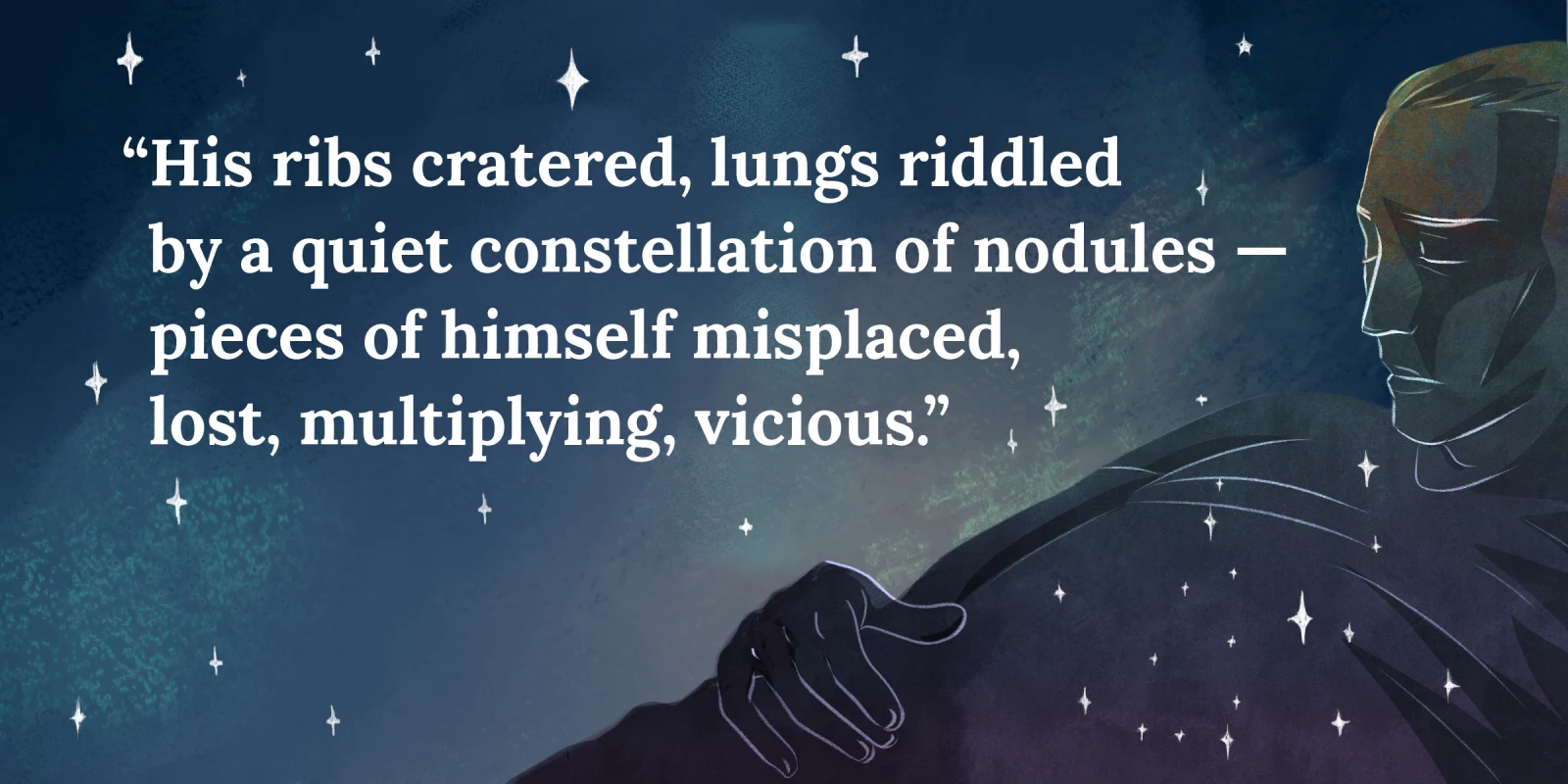This poem is part of the Medical Humanities vertical on Op-Med, which showcases creative writing by Doximity members. Do you have a poem, work of lyric prose, or flash fiction piece related to medicine that you’d like to share with the community? Send it to us here.
Lamellated
The more important a structure,
the more layers of protection
Evolution bestows.
I am trained to recognize mechanisms.
Evolution does not just protect the brain with a skull, but the mind with defenses.
I see my patient every day,
surrounded by his family,
grieving through hope, his stage IV diagnosis.
Each plane of the black and white scan
Makes clear just how decimated,
his ribs cratered, lungs riddled
by a quiet constellation of nodules —
pieces of himself misplaced, lost, multiplying,
vicious.
Still, they cling to treatment timelines,
clinical trials, distant miracles.
And I — complicit. accomplice. — join them.
Every day, I would talk about everything
but what matters.
All while they made plans for chemo and radiation,
until the day after his first treatment,
when he decided to go home.
They called it hospice,
but he called it choosing the terms.
He asked me what I’d eat
if I had just a week left.
I said something sweet and forgettable,
but now I wish I’d said something true.
I am trained to listen to the voiceless.
A guttural gasp, eyes darting, searching
for answers, obstructed.
I nod, glove to chest, feeling
the broken architecture:
right ribs splintered,
bone meant to guard
what we believe makes us human,
now pushing inward like blades.
After I release the tension in his chest,
the silence is different —
less desperate, more resigned.
Still voiceless.
But understood.
In surgery, we learn about the fasciae of the body
so that we can put back together
that which we dissect apart.
These countless layers of protection
often seem redundantly futile
when the source of disease
is already inside the cage.
An Interview with the Author
What was your inspiration? Did other creative works influence your creation of this piece?
I wrote this poem to rationalize how the pathophysiology of many disease states, both physical and mental, are due to perturbations of the many layers of defenses that evolution has bestowed on humanity over millennia. I identified a common theme of disease, regardless of speciality, from psychiatry to emergency medicine to oncology. Diseases often originate from our own bodies. They exploit our natural defenses, and sometimes the defenses themselves become the complication. This poem was partially inspired by my first ever patient on my internal medicine clerkship: a gentleman who was admitted for dizziness and found to be hypercalcemic with scores of lytic bone metastases. I consider him to be the first patient of my career in medicine — the first patient who I took ownership of. I was also influenced by my six years working as a volunteer emergency medical technician in Richmond. Additionally, I must thank my good friend Maya Sorini (herself a published poet), who encourages me in everything I do.
How long have you been writing creatively? What got you started?
I’ve been writing poetry since high school, but only recently found the courage to share my poetry with a broader audience than just my friends and family. Art and writing was a welcome contrast from my other hard science classes in school.
Why did you choose this medium? What interests you about it?
I chose poetry because of how freeing and creative it is. From nebulous or philosophic ideas, you can create concrete structure and form. You must carefully choose each individual word to make sure it conveys the tone and rhythm you're looking for, but reading a line or stanza together can convey a totally different meaning through metaphor.
How does this submission relate to your medical practice?
I believe this poem will resonate with many health care workers, especially those in training, who have felt powerless in the face of the natural history of disease. It serves as a reminder that there are many factors out of both our and the patient’s control, which I find paradoxically comforting.
What do you remember about the first patient you took ownership of? Share in the comments.
Suraj Bala is a medical student interested in ophthalmology at the Hackensack Meridian School of Medicine. He was born and raised in Richmond, VA. His interest in clinical research led him to complete a research year at the Cleveland Clinic Cole Eye Institute. He is interested in narrative medicine as a creative outlet and is a published poet.
Illustration by






